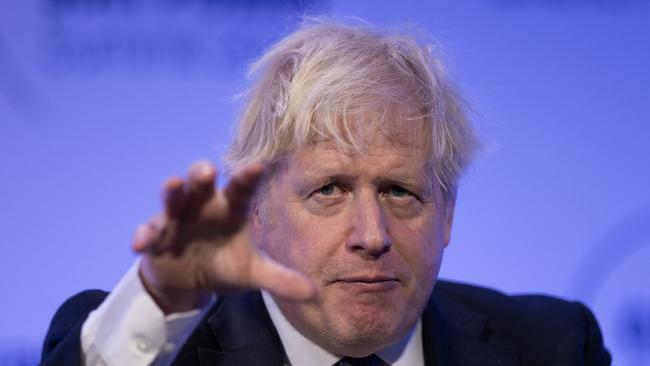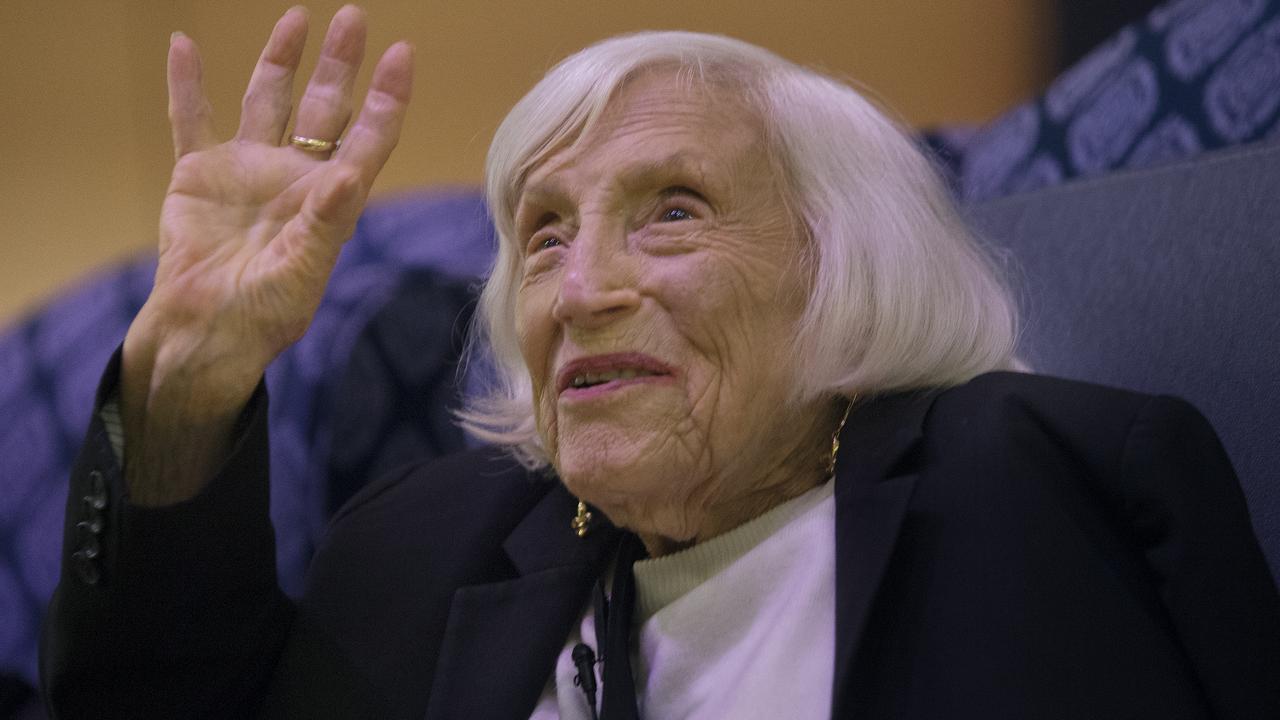Brexit freedoms will be lost in compromise deal, says Johnson
The former prime minister’s intervention ends Rishi Sunak’s hopes of ending the Tory civil war over the EU divorce.

British Prime Minister Rishi Sunak’s hopes of ending the Tory civil war over Brexit has suffered a setback after Boris Johnson launched a stinging attack on his compromise deal with the EU.
The former prime minister used his first major speech in the UK since leaving office to say he would find it “very difficult” to vote for Mr Sunak’s deal, warning: “This is not about the UK taking back control.”
He also claimed that the EU was trying to use Northern Ireland to keep the whole of the UK in the orbit of Brussels and prevent the country from taking advantage of the Brexit “freedoms” he had fought for.
“We must be clear about what is really going on here,” he told the Global Soft Power summit in London. “This is not about the UK taking back control. This is the EU graciously unbending to allow us to do what we want in our own country, not by our laws, but by theirs.”
He said the reality was that under Mr Sunak’s deal Northern Ireland would remain under EU law, with Brussels still making regulations, but “with what they hope will be lighter bureaucracy”. In a warning to his successor, Mr Johnson said the Conservatives won a bigger majority thanks to the party’s pledge to deliver on Brexit and suggested it could be imperilled by Sunak’s deal.
Mr Johnson’s overt opposition to the deal will make life more difficult for Mr Sunak, who has conceded MPs will have to be given a vote on the agreement in parliament. No Brexiteer MPs have so far come out to endorse Mr Johnson, but his opposition is likely to harden views in Westminster. It will also mean difficult discussions within the Democratic Unionist Party, which is considering whether to endorse the new plan and return to power-sharing. The European Research Group of Brexiteer MPs is also considering its position on the agreement.
Mr Johnson did not explicitly say he would vote against the deal, but said Mr Sunak should have proceeded with his controversial bill, which would have allowed the government unilaterally to override the existing Northern Ireland protocol.
Mr Johnson said he had “no doubt at all” that his controversial Northern Ireland Protocol Bill threatening to override international law “is what brought the EU to negotiate seriously”.
However, he conceded that people “want to move on” and sign the deal. He also admitted he had made mistakes when he signed off on the original protocol in 2019. “I thought those checks would not be onerous,” he said. “It’s all my fault, I fully accept responsibility.”
In an attempt to counter Mr Johnson’s argument Northern Ireland Secretary Chris Heaton-Harris insisted that the Windsor framework would bring “prosperity to Northern Ireland like never before”.
He said in a statement: “With our deal, we are decisively taking back control in a host of areas from Brussels. It ensures unfettered access for Northern Ireland-made goods to the whole UK market, restores the balance of the (Good Friday) agreement and provides Stormont with the opportunity to reject . . . any harmful new EU rules in the few areas in which they remain.”
A former Northern Ireland attorney-general said that the Windsor framework did not strengthen the constitutional status of Northern Ireland as part of the UK. In an analysis for a unionist think tank, John Larkin KC said the proposals were not compatible with the Acts of Union 1800 that guaranteed equal rights for the people of Northern Ireland. “Do the proposals in the Windsor framework strengthen the constitutional guarantee respecting the constitutional status of Northern Ireland? No.”
Writing a foreword to the report, the DUP MP Ian Paisley said his instinctive reaction was that the new deal did not solve the problems of the Northern Ireland protocol. “It is my view that unionism will have to dig deep in the coming days to overcome the problems caused by the protocol,” he wrote. “My instinctive reaction to the Windsor framework remains that the problem is not yet solved.”
THE TIMES


